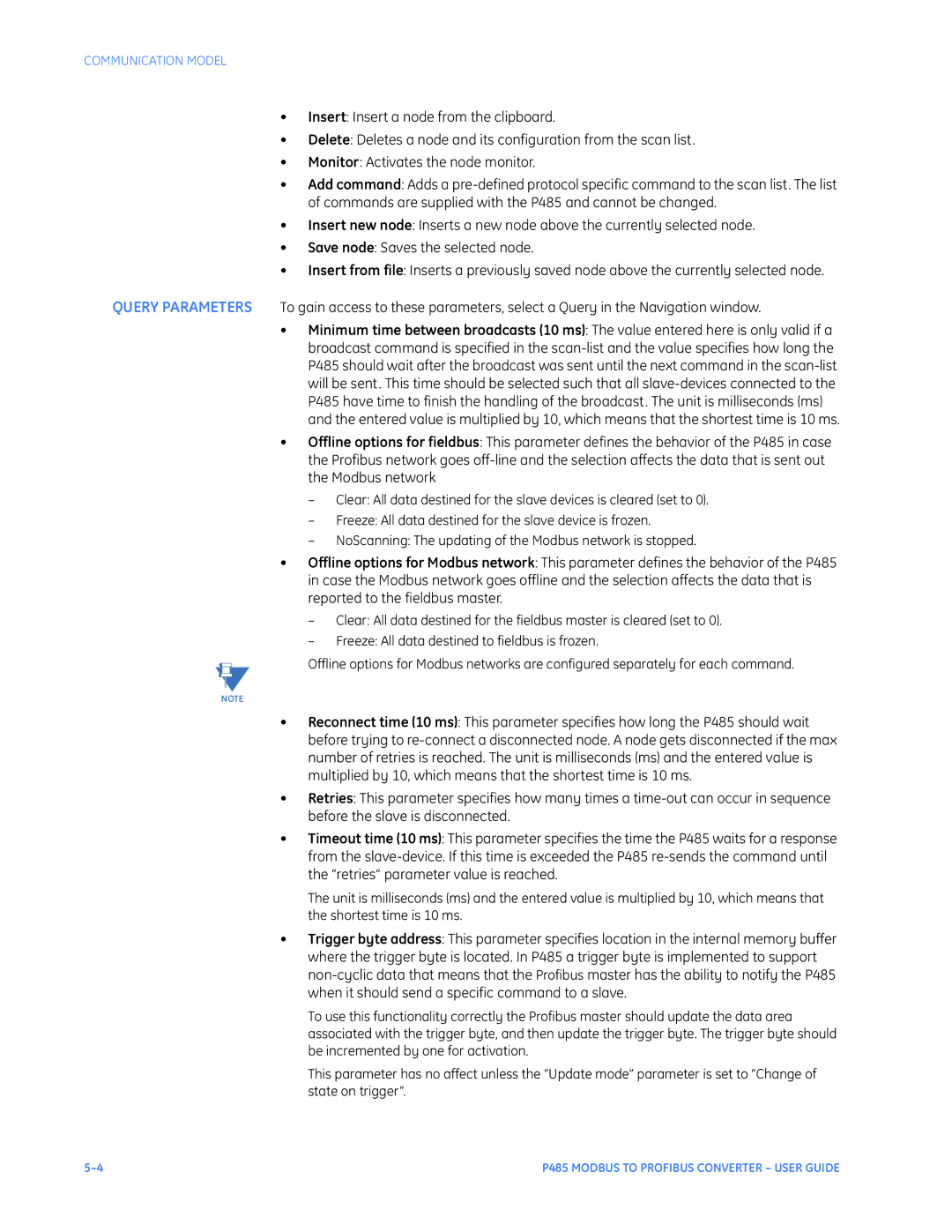COMMUNICATION MODEL
•Insert: Insert a node from the clipboard.
•Delete: Deletes a node and its configuration from the scan list.
•Monitor: Activates the node monitor.
•Add command: Adds a
•Insert new node: Inserts a new node above the currently selected node.
•Save node: Saves the selected node.
•Insert from file: Inserts a previously saved node above the currently selected node.
QUERY PARAMETERS To gain access to these parameters, select a Query in the Navigation window.
•Minimum time between broadcasts (10 ms): The value entered here is only valid if a broadcast command is specified in the
•Offline options for fieldbus: This parameter defines the behavior of the P485 in case the Profibus network goes
–Clear: All data destined for the slave devices is cleared (set to 0).
–Freeze: All data destined for the slave device is frozen.
–NoScanning: The updating of the Modbus network is stopped.
•Offline options for Modbus network: This parameter defines the behavior of the P485 in case the Modbus network goes offline and the selection affects the data that is reported to the fieldbus master.
–Clear: All data destined for the fieldbus master is cleared (set to 0).
–Freeze: All data destined to fieldbus is frozen.
Offline options for Modbus networks are configured separately for each command.
NOTE
•Reconnect time (10 ms): This parameter specifies how long the P485 should wait before trying to
•Retries: This parameter specifies how many times a
•Timeout time (10 ms): This parameter specifies the time the P485 waits for a response from the
The unit is milliseconds (ms) and the entered value is multiplied by 10, which means that the shortest time is 10 ms.
•Trigger byte address: This parameter specifies location in the internal memory buffer where the trigger byte is located. In P485 a trigger byte is implemented to support
To use this functionality correctly the Profibus master should update the data area associated with the trigger byte, and then update the trigger byte. The trigger byte should be incremented by one for activation.
This parameter has no affect unless the “Update mode” parameter is set to “Change of state on trigger”.
P485 MODBUS TO PROFIBUS CONVERTER – USER GUIDE |
